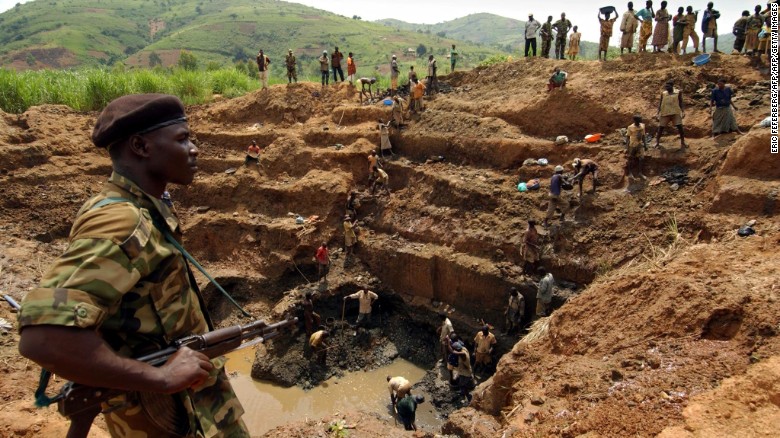- Stay Connected
Why the wealth of Africa does not make Africans wealthy

(CNN)Katanga province in the Democratic Republic of Congo is blessed with enormous natural wealth, including vast deposits of precious minerals such as diamonds, gold, and tantalum.
Katanga saw a spectacular mining boom around the turn of the century, when President Laurent-Desire Kabila and then his son Joseph licensed international mining companies to tap its treasures.
This arrangement generated riches for the Congolese elite, and vastly more for the prospectors, but offered little to the poverty-ravaged population. From 1999 to 2002, the Kabila regime “transferred ownership of at least $5 billion of assets from the state-mining sector to private companies under its control… with no compensation or benefit for the State treasury,” a United Nations investigation found.
The bonanza coincided with a ruthless crackdown on dissent. In 2004, a small, mostly civilian group took over a mine operated by the Australian firm Anvil Mining in Kilwa village, protesting that the company was making huge profits without rewarding the local workforce.
According to a UN report, the Congolese army crushed the uprising and killed around 100 people, many by summary execution.
Modern colonialism
The combination of staggering wealth, rampant violence, and abject poverty in DR Congo is no coincidence, but part of a pattern causing devastation across Africa, according to Financial Times investigative journalist Tom Burgis.
In a new edition of his book The Looting Machine, the author probes the paradox of “the continent that is at once the world’s poorest and, arguably, its richest.”
Burgis, a former correspondent in Lagos and Johannesburg, finds a wide variety of kleptocrats and rackets over his travels through dozens of resource-rich countries. But a common thread is that the wholesale expropriation of resources during colonial times has barely slowed through the post-independence era, albeit with new beneficiaries.
“Western governments are not supposed to wield commercial and political power at the same time, and certainly not to use one to benefit the other,” says Burgis. “In colonial states…The British or Portugese would cultivate a small group of local people who would fuse political and commercial power to control the economy.”
“When the foreign power leaves, you are left with an elite that has no division between political and commercial power. The only source of wealth is mines or oilfields, and that is a recipe for ultra-corrupt states. Somewhere like Nigeria, an ‘extractor elite’…wanted to draw to itself the rent that oil and mining resources generate.”
Burgis cites another colonial hangover in the continued presence and power of oil and mining firms.
“The multinational companies hold enormous economic and political power in post-independence African countries,” he says. “In this way, there is a pretty straight line from colonial exploitation to modern exploitation.”Read more: CNN
